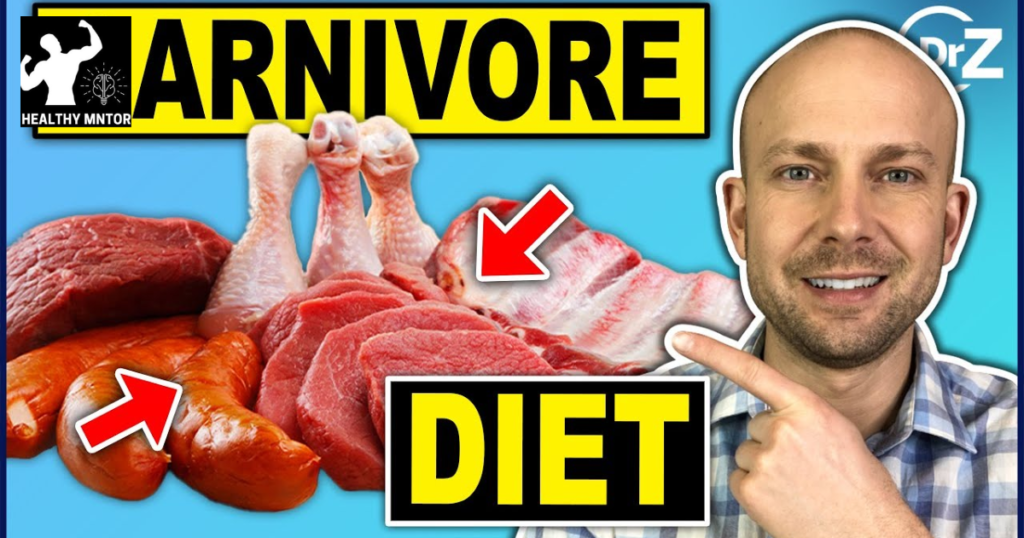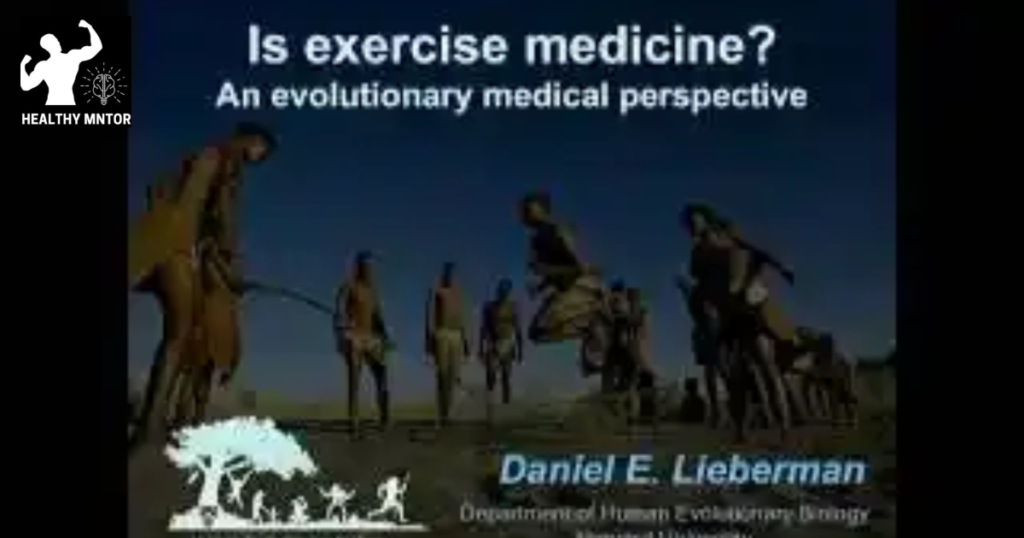The Carnivore Diet is an extreme dietary approach that involves consuming only animal-based foods, primarily meat, fish, and other animal products. As the name suggests, this diet eliminates all plant-based foods, including fruits, vegetables, grains, legumes, and nuts. The premise behind the Carnivore Diet is that our ancestral hunter-gatherer diets consisted primarily of animal-derived nutrients, and that modern plant-based foods may be contributing to various health issues.
The Carnivore Diet has gained popularity in recent years, particularly among individuals seeking weight loss, improved digestion, or relief from autoimmune disorders. Proponents claim that by removing plant-based foods, which contain ant nutrients, lectins, and other potentially problematic compounds, the body can function more optimally and alleviate various health problemsCarnivore Diet.
How Does the Carnivore Diet Work?
The Carnivore Diet is a ketogenic diet, meaning it induces a metabolic state called ketosis, where the body relies primarily on fat for fuel instead of carbohydrates. When carbohydrate intake is severely restricted, as is the case with the Carnivore Diet, the liver begins to produce ketone bodies from fat, which serves as an alternative energy source for the brain and other tissues.
By eliminating all plant-based foods, the Carnivore Diet eliminates virtually all sources of carbohydrates, except for the small amounts found in animal products like dairy and organ meats. This drastic reduction in carbohydrate intake, combined with the high intake of fat and protein from animal sources, is what drives the body into ketosis.
Who Is Shawn Baker? And What’s His Role in the Popularity of the Carnivore Diet?

Shawn Baker, a former orthopedic surgeon and athlete, is often credited with popularizing the Carnivore Diet. Baker adopted the Carnivore Diet in 2016 and claims that it helped him overcome various health issues, including autoimmune conditions and digestive problems.
Through his social media presence, podcasts, and online communities, Baker has been a vocal advocate for the Carnivore Diet, sharing his personal experiences and promoting the potential benefits of an all-meat diet. His influential role in the Carnivore Diet community has earned him the nickname “The Carnivore King.”
Baker’s advocacy for the Carnivore Diet has resonated with many individuals seeking alternative approaches to address health problems or achieve fitness goals. His compelling personal story and unwavering commitment to the diet have inspired others to experiment with this extreme dietary approach.
Carnivore Diet Food List: What to Eat and Avoid
Foods to Eat on the Carnivore Diet
- Meat: Beef, pork, lamb, bison, venison, and other red meats
- Poultry: Chicken, turkey, duck, and other fowl
- Fish and Seafood: Salmon, tuna, cod, shrimp, and other seafood
- Eggs: Whole eggs, including the yolks
- Dairy Products: Butter, ghee, cheese, heavy cream, and other full-fat dairy products
- Animal Fats: Tallow, lard, duck fat, and other rendered animal fats
- Bone Broth: Nutrient-rich broths made from simmering animal bones
Foods That May Be Okay on the Carnivore Diet

Spices and Herbs: Salt, pepper, garlic powder, and other dried herbs and spices (in moderation)
Condiments: Mustard, hot sauce, and other condiments without added sugars or plant-based ingredients
Foods Not Allowed on the Carnivore Diet
All fruits and vegetables are strictly prohibited
- Grains: Wheat, rice, oats, corn, and other grains
- Legumes: Beans, lentils, peas, and other legumes
- Nuts and Seeds: Almonds, walnuts, chia seeds, and all other nuts and seeds
- Sweeteners: Sugar, honey, maple syrup, and artificial sweeteners
- Oils: Vegetable oils, olive oil, and other plant-based oils
- Beverages: Fruit juices, milk, soda, and any other non-water or non-animal-based beverages
It’s important to note that while some versions of the Carnivore Diet allow for the inclusion of certain dairy products, others may exclude them entirely, as dairy can be a source of potential allergens or digestive issues for some individuals.
Carnivore Diet Meal Plan: 1 Day of Eating
Here’s an example of what a typical day of eating might look like on the Carnivore Diet:
3 scrambled eggs cooked in butter
- slices of bacon
- cup of bone broth
- Lunch:
- oz. grilled ribeye steak
- 1/2 avocado (some versions of the diet allow avocados)
- Snack:
- oz. cheese
- 1/4 cup of macadamia nuts (some versions of the diet allow nuts)
Dinner:
- 8 oz. pan-seared salmon
- 1 cup of sautéed spinach (some versions of the diet allow leafy greens)
- 1/4 cup of heavy cream (for sauce or dressing)
It’s essential to note that this meal plan is just an example, and individual dietary preferences, caloric needs, and the specific version of the Carnivore Diet being followed may result in variations.
Proposed Health Benefits of the Carnivore Diet
Jordan Peterson, a clinical psychologist, and his daughter Mikhaila Peterson are among the most prominent advocates of the Carnivore Diet. They claim to have experienced significant health benefits after adopting this dietary approach.
Mikhaila Peterson’s Experience
Mikhaila Peterson credits the Carnivore Diet with alleviating her severe autoimmune and digestive issues, which she had struggled with for years. According to her testimony, eliminating all plant-based foods from her diet led to a drastic improvement in her symptoms, including relief from joint pain, fatigue, and depression.
Jordan Peterson’s Experience
Jordan Peterson, who had been dealing with various health problems, including severe depression and anxiety, also reported positive changes after adopting the Carnivore Diet. He claims that the diet helped improve his mental clarity, energy levels, and overall well-being.
Both Jordan and Mikhaila Peterson have been vocal advocates of the Carnivore Diet, sharing their personal experiences and promoting the potential benefits of an all-meat diet for individuals with autoimmune disorders, mental health issues, and other chronic conditions.
While their testimonies are compelling, it’s important to note that these are anecdotal accounts, and more rigorous scientific research is needed to substantiate the claimed benefits of the Carnivore Diet for specific health conditions.
Carnivore Diet Results: Will the Meal Plan Help With Weight Loss?

One of the primary claims made by proponents of the Carnivore Diet is its potential for facilitating weight loss. While the diet’s restrictive nature and emphasis on high-protein, high-fat foods may contribute to weight loss for some individuals, the scientific evidence is limited, and the long-term sustainability of this approach remains questionable.
How the Carnivore Diet May Promote Weight Loss
Calorie Deficit:
By eliminating entire food groups, such as grains, fruits, and vegetables, the Carnivore Diet can lead to a significant reduction in calorie intake, creating a calorie deficit conducive to weight loss.
Increased Protein Intake:
The Carnivore Diet is naturally high in protein, which can promote feelings of fullness and satiety, potentially leading to reduced calorie consumption.
Ketosis:
As a ketogenic diet, the Carnivore Diet induces ketosis, a metabolic state that may enhance fat burning and weight loss in some individuals.
Elimination of Processed Foods:
By restricting the diet to only animal-based foods, the Carnivore Diet eliminates many processed and ultra-processed foods, which are often high in calories, sugar, and unhealthy fats.
However, it’s important to note that weight loss on the Carnivore Diet may not be sustainable in the long term, and the potential health risks associated with this dietary approach should be carefully considered.
What Are the Carnivore Diet Health Risks You Need to Know?

While proponents of the Carnivore Diet tout various health benefits, many experts and health organizations have raised concerns about the potential risks associated with this extreme dietary approach. Here are some of the most significant health risks you need to be aware of:
1. Nutrient Deficiencies
By eliminating all plant-based foods, the Carnivore Diet lacks essential nutrients found in fruits, vegetables, grains, and legumes. These nutrients include dietary fiber, vitamins C and E, folate, and various phytochemicals with antioxidant and anti-inflammatory properties. Long-term adherence to the Carnivore Diet may increase the risk of nutrient deficiencies, which can lead to various health problems.
2. Lack of Fiber
The complete absence of dietary fiber on the Carnivore Diet can have detrimental effects on digestive health, potentially leading to constipation, hemorrhoids, and an increased risk of colorectal cancer. Fiber is essential for maintaining regular bowel movements, promoting a healthy gut microbiome, and reducing the risk of chronic diseases.
3. Increased Risk of Heart Disease
The Carnivore Diet is typically high in saturated fat and cholesterol, which can raise LDL (bad) cholesterol levels and increase the risk of heart disease, stroke, and other cardiovascular problems. While the relationship between saturated fat, cholesterol, and heart disease is complex, many health organizations still recommend limiting intake of these substances.
4. Potential Kidney Issues
The high protein intake associated with the Carnivore Diet can strain the kidneys, potentially leading to kidney stones, gout, or even kidney damage in individuals with pre-existing kidney problems or other risk factors.
5. Lack of Diversity in the Gut Microbiome
A diverse and healthy gut microbiome is essential for overall health and immune function. By eliminating plant-based foods, the Carnivore Diet may lead to a less diverse gut microbiome, which has been linked to various health issues, including inflammatory bowel diseases, obesity, and metabolic disorders.
While some individuals may experience short-term benefits from the Carnivore Diet, such as weight loss or relief from certain symptoms, the long-term risks and potential nutrient deficiencies associated with this dietary approach are concerning. It’s crucial to consult with a qualified healthcare professional before undertaking any extreme dietary changes.
What if You Opt for Lean Meats, Like Fish and Poultry?
While the Carnivore Diet emphasizes the consumption of all types of meat, including red meat, some individuals may choose to focus on leaner protein sources, such as fish and poultry. This approach could potentially mitigate some of the health risks associated with the high intake of saturated fat and cholesterol found in red meat.
Advantages of Leaner Protein Sources
Lower Saturated Fat Content:
Fish and poultry generally contain less saturated fat compared to red meats, which may be beneficial for cardiovascular health.
Omega-3 Fatty Acids:
Fatty fish, such as salmon, mackerel, and sardines, are rich in omega-3 fatty acids, which have anti-inflammatory properties and may provide various health benefits.
Potential for Nutrient Diversity:
By including a variety of fish and poultry, individuals may be able to obtain a broader range of nutrients, such as selenium, vitamin D, and certain B vitamins.
However, it’s important to note that even with a focus on leaner protein sources, the Carnivore Diet still lacks essential nutrients found in plant-based foods, such as dietary fiber, vitamin C, and various phytochemicals.
Sustainability Concerns:
Relying solely on fish and poultry may raise sustainability concerns, as these protein sources can be subject to overfishing and environmental impact.
Nutrient Deficiencies:
While leaner protein sources may provide some nutritional advantages, they do not address the potential nutrient deficiencies associated with the complete elimination of plant-based foods.
Lack of Variety:
Restricting the diet to only fish and poultry may lead to a lack of dietary variety, which can be challenging to maintain in the long term and may contribute to nutrient deficiencies.
While opting for leaner protein sources on the Carnivore Diet may offer some potential benefits, it does not eliminate the inherent risks and limitations associated with this extreme dietary approach. Moderation, balance, and the inclusion of nutrient-dense plant-based foods are often recommended for optimal health and well-being.
Why Are Some Experts So Alarmed About a So-Called ‘All-Meat Diet’?
The Carnivore Diet has raised significant concerns among many health experts and organizations due to its extreme nature and potential long-term health implications. Here are some of the main reasons why experts are alarmed about this dietary approach:
1. Lack of Scientific Evidence
There is limited scientific research on the long-term effects of an all-meat diet on human health. Most dietary recommendations are based on the wealth of evidence supporting a balanced diet that includes a variety of nutrient-dense plant-based foods.
2. Nutrient Deficiencies
As mentioned earlier, the Carnivore Diet lacks essential nutrients found in plant-based foods, such as dietary fiber, vitamins C and E, folate, and various phytochemicals with antioxidant and anti-inflammatory properties. Prolonged nutrient deficiencies can lead to various health problems.
3. Increased Risk of Chronic Diseases
The high intake of saturated fat and cholesterol associated with the Carnivore Diet raises concerns about the increased risk of heart disease, stroke, and certain types of cancer. Many health organizations recommend limiting these substances to reduce the risk of chronic diseases.
4. Potential Gut Microbiome Imbalances
A diverse and healthy gut microbiome is essential for overall health and immune function. The lack of dietary fiber and plant-based foods on the Carnivore Diet may lead to an imbalanced gut microbiome, which has been linked to various health issues.
5. Sustainability and Environmental Concerns
An all-meat diet raises concerns about sustainability and environmental impact, as animal agriculture is a significant contributor to greenhouse gas emissions, deforestation, and water pollution.
While some individuals may report positive anecdotal experiences with the Carnivore Diet, experts emphasize the importance of following evidence-based dietary guidelines that promote a balanced and varied diet rich in nutrient-dense plant-based and animal-based foods. Extreme dietary approaches like the Carnivore Diet are generally not recommended due to the potential risks and lack of long-term scientific evidence.
Healthful Foods You Can’t Eat on the Carnivore Diet

One of the most significant drawbacks of the Carnivore Diet is the elimination of numerous nutrient-dense and health-promoting plant-based foods. Here are some examples of healthful foods that are not allowed on the Carnivore Diet:
Fruits and Vegetables
The Carnivore Diet prohibits the consumption of all fruits and vegetables, which are excellent sources of essential vitamins, minerals, antioxidants, and dietary fiber. Some examples of nutrient-rich fruits and vegetables that are not permitted on the diet include:
- Leafy greens (kale, spinach, arugula)
- Cruciferous vegetables (broccoli, cauliflower, Brussels sprouts)
- Berries (blueberries, raspberries, strawberries)
- Citrus fruits (oranges, grapefruits, lemons)
- Root vegetables (carrots, sweet potatoes, beets)
Whole Grains
Whole grains provide a range of beneficial nutrients, including fiber, B vitamins, and various antioxidants. Examples of whole grains that are not allowed on the Carnivore Diet include:
- Oats
- Quinoa
- Brown rice
- Whole wheat
- Barley
Legumes
Legumes, such as beans, lentils, and peas, are excellent sources of plant-based protein, fiber, and various minerals. They are prohibited on the Carnivore Diet.
Nuts and Seeds
Nuts and seeds are nutrient-dense foods that provide healthy fats, protein, fiber, and a variety of vitamins and minerals. Examples include almonds, walnuts, chia seeds, and flaxseeds.
Healthy Oils
While the Carnivore Diet allows for the consumption of animal fats, it prohibits the use of healthy plant-based oils, such as olive oil, avocado oil, and nut oils.
By eliminating these nutrient-rich plant-based foods, the Carnivore Diet may increase the risk of nutrient deficiencies and potentially contribute to long-term health issues.
While some individuals may experience short-term benefits from following the Carnivore Diet, many health experts recommend a more balanced and varied dietary approach that includes a variety of nutrient-dense plant-based and animal-based foods.
What About the Claim That Certain Tribes Subsist Only on Meat?
Proponents of the Carnivore Diet often cite the existence of certain traditional hunter-gatherer tribes that allegedly subsisted primarily or exclusively on animal-based foods as evidence supporting the potential benefits and sustainability of an all-meat diet. However, the validity of these claims is heavily debated, and many experts argue that the available evidence does not support the notion that any human population has thrived solely on meat over an extended period.
The Inuit and Other Arctic Populations
One of the most commonly cited examples of meat-eating tribes is the Inuit population of the Arctic regions. While it is true that the Inuit diet historically consisted primarily of animal-based foods, such as seal, whale, and fish, they also consumed a variety of plant-based foods when available, including berries, roots, and seaweed.
Moreover, the Inuit diet was shaped by the harsh Arctic environment and the scarcity of plant-based foods in these regions. Their dietary practices were a means of survival rather than a deliberate choice to exclude plant-based foods.
Other Hunter-Gatherer Tribes
Claims have also been made about certain hunter-gatherer tribes in Africa, South America, and other regions subsisting primarily on animal-based foods. However, upon closer examination, most of these tribes incorporated plant-based foods into their diets whenever possible, such as fruits, nuts, roots, and honey.
Even in cases where animal-based foods were the predominant source of nutrition, these populations often supplemented their diets with small amounts of plant-based foods, indicating that they did not intentionally exclude all plant-based sources of nutrients.
Evolutionary Perspective

From an evolutionary perspective, it is widely accepted that human beings have adapted to consume a varied diet that includes both animal-based and plant-based foods. Our ancestors likely consumed a diverse range of foods based on availability and environmental conditions, rather than adhering to a strictly carnivorous or herbivorous diet.
While certain populations may have relied more heavily on animal-based foods due to environmental circumstances, the available evidence does not support the claim that any human population has thrived solely on meat for an extended period without experiencing nutritional deficiencies or health consequences.
Who Should Eat a Carnivore Diet? And Who Shouldn’t Eat a Carnivore Diet?
Given the potential risks and lack of long-term scientific evidence associated with the Carnivore Diet, it is crucial to carefully consider whether this dietary approach is suitable for an individual’s specific circumstances and health goals.
Who Might Consider the Carnivore Diet?
While not recommended for the general population, some individuals may consider trying the Carnivore Diet under the following circumstances:
Individuals with Severe Food Intolerances or Allergies
: For those who have severe reactions to plant-based foods or have difficulty digesting them, the Carnivore Diet may provide temporary relief by eliminating potential trigger foods. However, it should only be undertaken under the guidance of a qualified healthcare professional and for a limited period.
Individuals with Specific Autoimmune Conditions:
Some proponents claim that the Carnivore Diet may help alleviate symptoms of certain autoimmune disorders, such as rheumatoid arthritis or inflammatory bowel diseases, by reducing inflammation. However, scientific evidence is limited, and the potential risks should be carefully weighed against any perceived benefits.
Individuals Seeking Short-Term Weight Loss:
Due to its high-protein and low-carbohydrate nature, the Carnivore Diet may lead to short-term weight loss for some individuals. However, it is important to consider the long-term sustainability and potential health risks of this approach.
Who Should Avoid the Carnivore Diet?
For most individuals, the Carnivore Diet is not recommended, and the potential risks often outweigh any perceived benefits. Here are some groups of people who should generally avoid this dietary approach:
Pregnant or Breastfeeding Women: The Carnivore Diet may lack essential nutrients crucial for the health and development of both the mother and the baby, such as folate, vitamin C, and dietary fiber.
Children and Adolescents: Growing children and adolescents have specific nutritional needs that may not be met by an all-meat diet, potentially leading to nutrient deficiencies and developmental issues.
Individuals with Kidney Problems: The high protein intake associated with the Carnivore Diet may strain the kidneys and exacerbate existing kidney issues or increase the risk of kidney stones.
Individuals with Cardiovascular Conditions: The high saturated fat and cholesterol content of the Carnivore Diet may increase the risk of heart disease, stroke, and other cardiovascular problems, particularly for those with pre-existing conditions or risk factors.
Individuals with a Balanced and Varied Diet: For most healthy individuals who can consume a balanced and varied diet that includes nutrient-dense plant-based and animal-based foods, the Carnivore Diet is not recommended and may pose unnecessary health risks.
It is crucial to consult with a qualified healthcare professional, such as a registered dietitian or a medical doctor, before making any significant dietary changes, especially if you have pre-existing health conditions or specific nutritional needs.
A Final Word on the Carnivore Diet: Should You Try It?

After exploring the details of the Carnivore Diet, its claimed benefits, potential risks, and the opinions of various experts, it is important to carefully consider whether this extreme dietary approach is right for you.
While some individuals may report positive anecdotal experiences with the Carnivore Diet, such as weight loss, improved digestion, or relief from certain symptoms, the scientific evidence supporting its long-term safety and efficacy is limited. Additionally, the potential risks associated with nutrient deficiencies, lack of dietary fiber, and the high intake of saturated fat and cholesterol should not be overlooked.
Here are some key points to consider before deciding whether to try the Carnivore Diet:
Consult with a Healthcare Professional: It is crucial to consult with a qualified healthcare professional, such as a registered dietitian or a medical doctor, before undertaking any extreme dietary changes. They can help assess your individual needs, potential risks, and provide personalized guidance.
Consider Your Health Status: Individuals with pre-existing health conditions, such as kidney problems, cardiovascular issues, or specific nutritional needs, should exercise caution and seek professional advice before attempting the Carnivore Diet.
Evaluate Your Goals: If your primary goal is sustainable weight loss or overall health improvement, there may be safer and more balanced dietary approaches to consider that do not eliminate entire food groups.
Be Mindful of Potential Nutrient Deficiencies: Even if you experience initial benefits, prolonged adherence to the Carnivore Diet may increase the risk of nutrient deficiencies, which can lead to various health problems over time.
Consider the Sustainability and Enjoyment Factor:
Conclusion
The Carnivore Diet is highly restrictive and may be challenging to maintain in the long term. It is essential to consider whether this dietary approach aligns with your personal preferences, lifestyle, and ability to stick to it consistently.
Ultimately, while the Carnivore Diet may appeal to some individuals seeking alternative approaches to health and weight management, it is vital to approach this dietary approach with caution and seek professional guidance. A balanced and varied diet that includes nutrient-dense plant-based and animal-based foods is generally recommended for optimal health and well-being.





